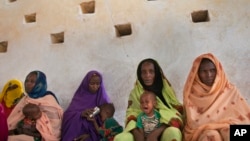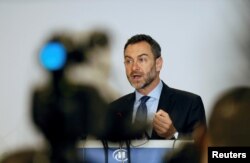The European Union should help countries in Africa's Sahel region tackle a population boom if it wants to keep more migrants from coming to its shores, a senior U.N. official said.
Toby Lanzer, humanitarian coordinator for the Sahel, said governments there are struggling to provide jobs, schools and food to the growing numbers that, the United Nations estimates, could triple to more 300 million by 2050.
"The challenge across the region is gigantic," Lanzer said in an interview Wednesday.
"In the coming 10-20 years we will see an ever-increasing number of migrants until the countries of Europe ... have a very frank conversation … about demography," he said, adding that the EU should also discuss trade and security to curb migration.
Italian data on sea arrivals so far this year show a sharp increase in migrants from several African countries including Mali, Senegal and Nigeria.
Last year, the EU launched a $2 billion fund for Africa to combat the poverty and conflicts that are driving people to migrate to Europe. It has also proposed making development aid conditional on governments' cooperation in curbing migration.
Lanzer commended politicians like Niger's President Mahamadou Issoufou for advocating what he referred to as a "demographic transition" in his re-election speech in April.
In Niger, the lowest-ranking country on the U.N. human development index, the average woman has more than seven children.
However, the question of family planning is sensitive in many parts of the Sahel, where polygamy is widely accepted.
"The conversation is starting to move in the right direction across the Sahel, but it still has some way to go," Lanzer added.






